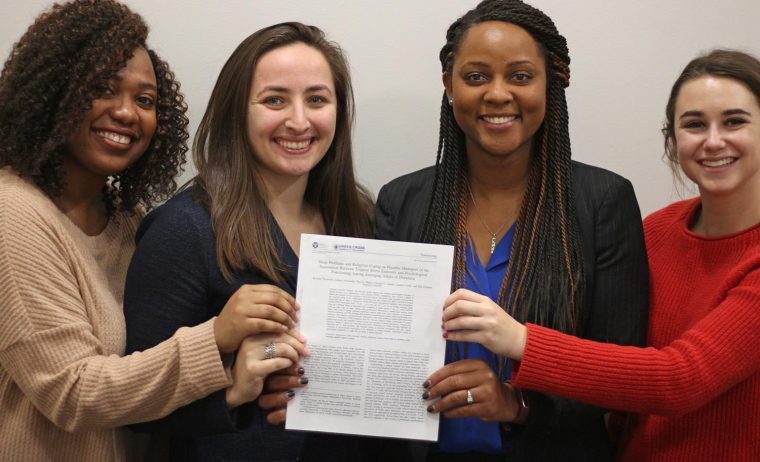Tavernier, Students Coauthor Paper on Psychological Trauma of Natural Disasters

Natural disasters are becoming more common all over the world. While the focus is often on restoring physical damage, these disasters also impact residents of the affected region psychologically in ways that are less well understood.
In a paper published in the journal Traumatology on Feb. 7, Assistant Professor of Psychology Royette Tavernier, along with five student coauthors, examined the psychological impact of tropical storm Erika, which hit the Caribbean island of Dominica in August 2015. The data analyzed was based on a sample of 174 college-aged individuals who completed survey-based assessments of several psychosocial variables six months after the storm.
Results showed that more negative exposure to the storm (e.g., displacement, lack of access to food and water) was associated with poor quality sleep, which, in turn, was associated with poorer psychological adjustment (higher rumination, less effective emotion regulation strategies and less perceived psychological growth from the experience of the storm). Furthermore, those who were more negatively affected by the storm had higher religious coping (praying, meditating). Interestingly, higher religious coping was linked with both positive (higher perceived psychological growth from the experience of the storm) and negative (higher rumination and PTSD symptoms) aspects of psychological adjustment.
According to Tavernier, these findings highlight the important roles that both sleep and religious coping play in explaining psychological adjustment in the aftermath of natural disasters.

